Top 10 CRM Solutions for Manufacturing Companies

Here are the top 10 best crm solutions for manufacturing companies in 2025:
- Sobot (with Sobot AI and Sobot call center)
- Salesforce
- HubSpot
- Zoho CRM
- Freshsales
- Pipedrive
- Keap
- Nutshell
- MRPEasy
- Microsoft Dynamics 365
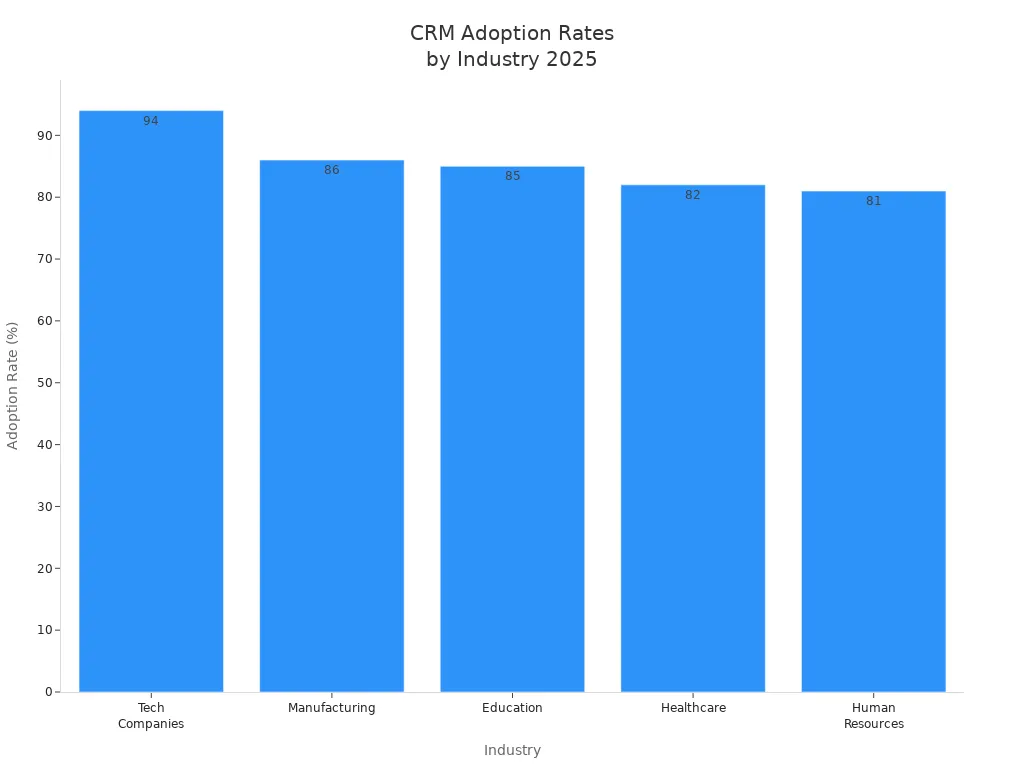
You want a system that helps every customer quickly, tracks orders, and makes your team more efficient. Sobot stands out for its Voice/Call Center and omnichannel solutions, trusted by brands worldwide. CRM adoption in manufacturing hit 86% this year. With AI-powered platforms, you see customer satisfaction jump 15%, average call times drop, and first-contact resolution rise. If you want the best crm for manufacturing business, start with solutions that put customer needs first.
Manufacturing CRM Software
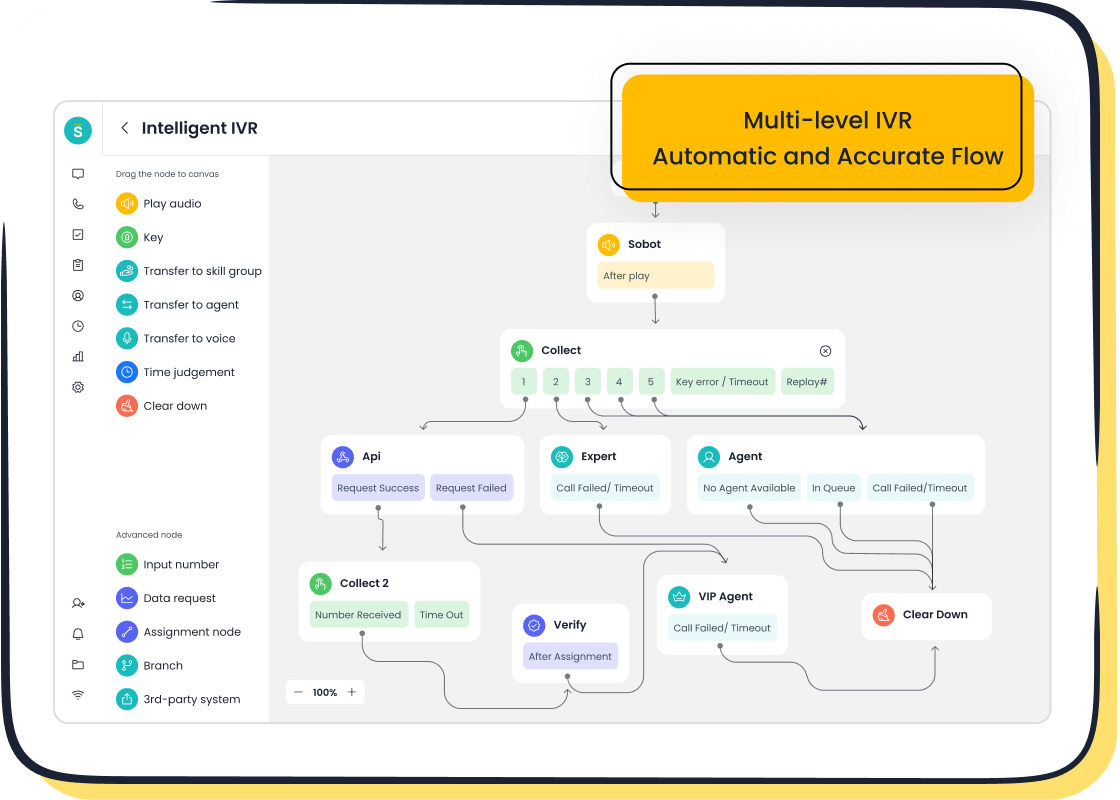
What Is Manufacturing CRM?
When you run a manufacturing business, you need more than a basic CRM. Manufacturing crm software helps you manage every part of your customer relationship, from the first contact to after-sales support. This type of software connects your sales, production, and service teams. You get a single place to track orders, manage inventory, and talk to your customer.
Manufacturing crm software stands out because it handles complex workflows and long sales cycles. You can connect it with your ERP, inventory, and accounting systems. This means less manual work and fewer mistakes. Here’s a quick look at what makes manufacturing crm software different:
| Unique Requirements of CRM for Manufacturing Companies | Description |
|---|---|
| Integration with other systems | Ensures seamless data flow and reduces manual entry errors by connecting with ERP, inventory management, and accounting software. |
| Order and inventory management features | Critical for tracking order history, status, and fulfillment processes, ensuring communication between sales and production teams. |
| Compliance with regulatory standards | Supports adherence to frameworks like GDPR and ISO 9001, with features for documentation management and automated reporting. |
| Ability to handle complex workflows | Necessary for managing bulk orders and long sales cycles, optimizing production schedules and demand forecasting. |
You can also use manufacturing crm software to manage leads, store customer data, send emails, and automate tasks. It helps you see your sales pipeline and forecast demand.
Key Benefits for Manufacturers
When you use manufacturing crm software, you see real results. You can track every customer order, answer questions faster, and keep your team on the same page. Most manufacturers report big gains after switching to this software.
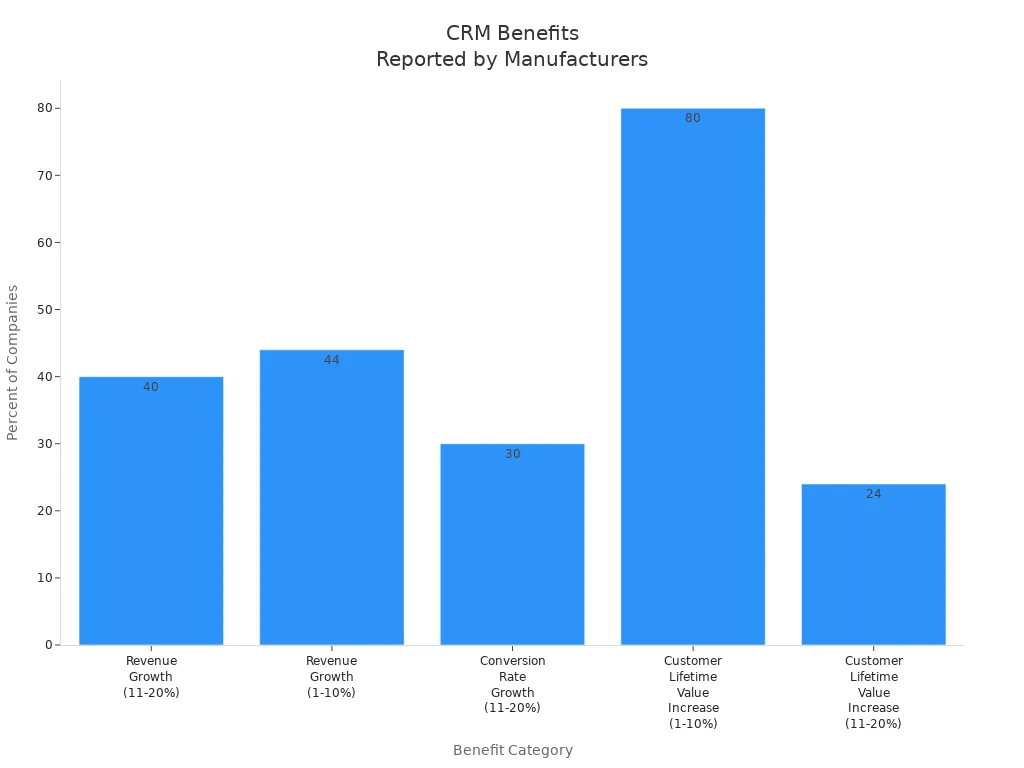
Check out these numbers:
| Metric | Percentage of Companies Reporting Benefit |
|---|---|
| Revenue Growth | 89% |
| Conversion Rate Improvement | 74% |
| Increased Customer Lifetime Value | 80% |
Manufacturing crm software helps you grow revenue, improve conversion rates, and keep your customer coming back. You get better order tracking, faster response times, and smarter production planning. Your customer feels valued, and your business runs smoother.
Best CRM Solutions for Manufacturing
Choosing the best crms for manufacturing can feel overwhelming. You want a solution that helps you organize information, manage distributors, and keep your team working together. Let’s break down the top options so you can see which manufacturing crm software fits your needs.
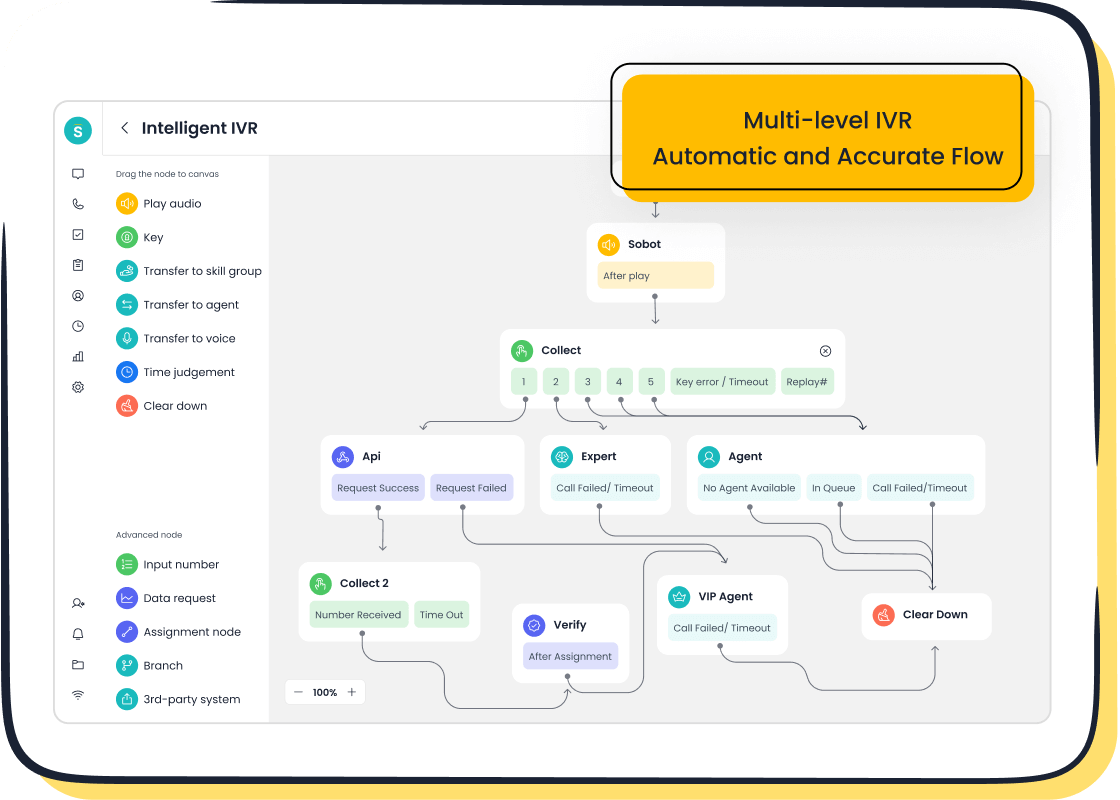
Sobot Voice/Call Center
You want your customer to get help fast. Sobot gives you a powerful Voice/Call Center and Omnichannel Solution. You can handle calls, chats, tickets, and WhatsApp messages all in one place. Sobot’s AI-powered voicebot answers routine questions, so your team can focus on complex issues. You get a unified workspace where agents see customer data, call history, and tickets. Sobot supports global phone numbers and has a 99.99% uptime, so your system stays reliable.
Big brands like Agilent use Sobot to boost customer service. Agilent saw a sixfold increase in service efficiency, a 25% drop in costs, and customer satisfaction hit 95%. Sobot’s integration is simple. You connect it to your existing manufacturing crm system, ERP, or other manufacturing software. You get real-time monitoring and analytics, so you always know how your team is performing. Sobot helps you improve customer engagement and build stronger customer relationships.
Learn more about Sobot’s Voice/Call Center
Agilent’s story with Sobot
Tip: Sobot’s omnichannel solution lets you manage customer contact across voice, chat, email, and social media. You save time and keep your customer happy.
Salesforce
Salesforce is a leader in customer relationship management. If you run a large manufacturing business, you get tools for demand forecasting, sales agreements, and workflow automation. Salesforce Manufacturing Cloud gives your sales team real-time data on inventory and orders. Production managers see the sales pipeline and plan production efficiently.
You can sync customer records between Salesforce and your ERP. Your team views order status, shipping dates, and tracking numbers without logging into the ERP. You automate quote-to-order workflows and support returns directly from Salesforce.
Salesforce offers middleware integration, direct API connections, and pre-built connectors for fast setup. You start with a data audit, prioritize use cases, and map your data before building anything.
| Use Case | Description |
|---|---|
| Sync Customers and Accounts | Keep customer records consistent across ERP and Salesforce. |
| View Order and Fulfillment Status | Sales and service teams see order history and shipping info. |
| Forecasting and Demand Planning | Use opportunity data to plan production. |
| Automate Quote-to-Order | Create ERP orders automatically when deals close. |
| Service and Returns | Track RMAs and open ERP cases from Salesforce. |
HubSpot
HubSpot makes manufacturing crm software simple for small and mid-sized teams. You track custom deal stages like “RFQ Sent” or “In Production.” You create quotes using your product library and set custom properties for volume, specs, and delivery dates. HubSpot’s task queues and workflows help your sales reps follow up with customers and manage complex deals.
You get advanced manufacturing reporting with real-time analytics. HubSpot’s Operations Hub syncs data with your ERP, so you see everything in one place. You build custom product catalogs and configure pricing for quotes.
Here’s a quick look at HubSpot’s manufacturing tools:
| Feature | Description |
|---|---|
| Custom deal stages | Track every step from RFQ to delivery. |
| Quote generation tools | Create quotes fast using your product library. |
| Custom properties | Track specs, volume, and delivery timelines. |
| Task queues/workflows | Manage follow-ups and complex deals. |
| Operations Hub integration | Sync data with ERP for better workflow automation. |
| Advanced reporting | See sales performance with real-time analytics. |
| Product catalogs | Configure specs and pricing for quotes. |
Zoho CRM
Zoho CRM helps you automate repetitive tasks and manage leads. You track deals, forecast sales, and keep your database clean with deduplication tools. Zoho CRM integrates with other systems, so you get seamless data flow. You validate data to avoid mistakes and use pipeline tools to prioritize deals.
Zoho CRM converts approved quotes into sales orders, reducing manual entry. You edit delivery dates and order quantities quickly. Customers get automatic notifications throughout the order lifecycle.
Sales orders help you track what needs to ship and when, supporting effective order tracking and inventory management.
| Feature | Benefit |
|---|---|
| Automation of Tasks | Sales teams focus on strategic work, not manual tasks. |
| Lead Management | Track and nurture leads so you never miss an opportunity. |
| Integration | Connects with other platforms for efficiency. |
| Deduplication Tools | Keeps your database clean and accurate. |
| Data Validation | Ensures reliable insights and operations. |
| Pipeline Tools | Forecast sales and close deals faster. |
Freshsales
Freshsales gives you workflow automation, AI-driven lead scoring, and task management. You automate follow-ups, send emails, and update fields without manual work. Freshsales helps you prioritize leads based on behavior and engagement. You schedule reminders and track interactions in one place.
| Feature | Description |
|---|---|
| Workflow Automation | Automate repetitive tasks like emails and updates. |
| Lead Management | AI scores leads so you focus on the best opportunities. |
| Task Management | Schedule follow-ups and track customer interactions. |
Pipedrive
Pipedrive helps you build a strong supply chain and boost sales. You create custom workflows, sales pipelines, and communication channels. You launch and track lead generation campaigns. Pipedrive monitors marketing automation and social media engagement. You segment stakeholders by behavior and importance.
You integrate with accounting platforms to automate finances. You send product updates to customers and distributors. Pipedrive stores communication history, so you meet and engage clients on every platform. You monitor inventory and adjust manufacturing processes as needed.
- Pipedrive’s manufacturing crm software helps you manage customer contact and improve customer experience.
- You build custom workflows and track every step of your sales pipeline.
- You keep communication history and monitor inventory in real-time.
Keap
Keap is a good choice for small manufacturing businesses. You automate emails, follow-ups, and reminders. Keap helps you manage leads, track orders, and keep customer data organized. You set up sales pipelines and automate repetitive tasks. Keap integrates with accounting and e-commerce platforms, so you see everything in one dashboard.
You use Keap to nurture customer relationships and improve customer engagement. You get simple tools for order tracking and inventory management. Keap’s automation features save you time and reduce manual work.
Nutshell
Nutshell focuses on team collaboration and easy automation. You capture emails and calendar events automatically. Nutshell’s zero-admin platform means you spend less time on setup and more time selling. You get channel-based pricing with unlimited users, so your costs stay predictable.
Nutshell helps you solve problems like missed follow-ups and fragmented communication. You go live in minutes with AI-powered reminders. Nutshell is great for B2B services and SMBs, including manufacturing industry teams that want simple automation and fast onboarding.
MRPEasy
MRPEasy is designed for small and growing manufacturing businesses. You get production planning, inventory management, and cost estimation. MRPEasy is cloud-based and easy to use, even for small teams. You manage bills of materials, schedule production, and track inventory in real-time.
MRPEasy offers a great price-to-performance ratio. You scale up as your business grows, supporting up to 200 employees. You get end-to-end traceability and dynamic scheduling. MRPEasy fits make-to-stock and engineer-to-order manufacturing types.
| Feature | Description |
|---|---|
| Production Planning | Forward and backward planning for efficient processes. |
| Inventory Management | Real-time tracking and optimization of stock levels. |
| User-Friendliness | Easy for small teams to use. |
| Cost-Effectiveness | Affordable for budget-conscious manufacturers. |
| Scalability | Supports growth up to 200 employees. |
Comparison Table
Here’s a quick side-by-side look at the best crms for manufacturing. You can see which manufacturing crm software fits your needs.
| CRM Solution | Key Features | Pricing | Pros | Cons | Best Fit |
|---|---|---|---|---|---|
| Sobot | Voice/Call Center, Omnichannel, AI Chatbot, Ticketing, WhatsApp API, Real-time analytics, Global numbers | SaaS rental, scalable | Fast integration, 99.99% uptime, trusted by global brands | Limited to supported channels | Medium to large manufacturing businesses needing unified customer contact |
| Salesforce | Manufacturing Cloud, ERP integration, Forecasting, Workflow automation, Real-time data | Tiered, enterprise | Advanced analytics, scalable, strong integrations | Complex setup, higher cost | Large manufacturing industry enterprises |
| HubSpot | Custom deal stages, ERP sync, Advanced reporting, Product catalogs | Tiered, SMB-friendly | Easy to use, strong automation, real-time analytics | Limited deep manufacturing features | Small to mid-sized manufacturing businesses |
| Zoho CRM | Automation, Lead management, Order tracking, Data validation | Affordable, flexible | Customizable, easy integration, clean database | May need add-ons for advanced features | SMBs needing order tracking and automation |
| Freshsales | Workflow automation, AI lead scoring, Task management | Tiered | Simple automation, AI-driven, easy onboarding | Fewer manufacturing-specific tools | Teams wanting automation and lead management |
| Pipedrive | Custom workflows, Supply chain, Inventory monitoring | Tiered | Strong pipeline tools, easy communication tracking | Limited ERP integration | Manufacturers focused on sales and supply chain |
| Keap | Email automation, Order tracking, Lead management | Tiered | Simple setup, good for small teams | Limited advanced manufacturing features | Small manufacturing businesses |
| Nutshell | Team collaboration, Zero-admin, AI reminders | Channel-based | Fast setup, unlimited users, easy onboarding | Fewer manufacturing-specific features | SMBs needing collaboration and automation |
| MRPEasy | Production planning, Inventory management, BOM, Scheduling | Tiered, affordable | Great price, easy for small teams, scalable | Limited CRM features | Small to mid-sized manufacturers needing MRP/ERP |
Note: Always consider your team’s needs, integration requirements, and budget before choosing a manufacturing crm software.
Common Challenges When Selecting a CRM
You might face some problems when picking the best crm for manufacturing business. Here are a few:
- Difficulty in organizing information
- Problems with managing distributors and customers
- Challenges with collaborating among team members
You also see issues like:
- Lack of a clear CRM strategy
- Insufficient stakeholder involvement
- Low user adoption
- Poor data quality and migration issues
- Underestimating customization needs
- Integration difficulties
- Lack of training and change management
- Choosing the wrong CRM solution
- Budget overruns
- Misaligned workflows
- Lack of executive sponsorship
- Inadequate post-implementation support
Manufacturers and wholesale distributors often struggle with demand forecasting, inventory management, and logistical efficiency. These challenges can impact your operations and customer experience. Picking the right manufacturing crm software helps you solve these problems and improve production efficiency.
Best CRMs for Manufacturing: Essential Features
Customer Contact Management
You want to keep every customer happy and connected. The best crm for manufacturing business gives you tools to manage every customer touchpoint. You track calls, emails, and chats in one place. This helps you build strong customer relationships and boost customer engagement. Here’s a quick look at how top manufacturing crm software solutions stack up for contact management:
| CRM Solution | Key Features | Price Range |
|---|---|---|
| Microsoft Dynamics 365 | Integrated with LinkedIn, lead management, ERP integration | $65 to $150 |
| Salesforce | Customizable solutions, marketing automation, workflow automation | $25 to $500 |
| Infor CRM | Lead and opportunity management, industry-specific capabilities for manufacturing | N/A |
You can see how these platforms help you organize customer data and keep your team on the same page.
Sales and Order Tracking
Manufacturing businesses need to track every sale and order. Manufacturing crm software lets you follow the sales pipeline from quote to delivery. You get real-time updates on orders and inventory. Here’s what you should look for:
| Feature | Description |
|---|---|
| Integration with ERP systems | Streamlines order-to-cash processes and links customer information with financial data. |
| Real-time data synchronization | Keeps sales orders and production in sync, so you avoid stockouts and errors. |
| Automation of workflows | Sends order confirmations and shipping alerts automatically. |
| Mobile capabilities | Gives field reps real-time access to customer and order status. |
You improve production efficiency and make sure every customer gets what they need, fast.
Integration with ERP
You want your manufacturing crm system to work with your ERP and other manufacturing software. Follow these steps for a smooth integration:
- Assess your needs and match them to your business goals.
- Pick ERP and CRM for manufacturing that fit your requirements.
- Plan your integration strategy and involve your team.
- Roll out the integration in phases and test each step.
- Train your staff and offer support.
This approach helps you avoid mistakes and keeps your customer relationship management running smoothly.
After-Sales Support
Great after-sales support sets you apart in the manufacturing industry. Manufacturing crm software helps you manage service requests, warranty claims, and maintenance schedules. You track and solve customer issues quickly. This leads to higher customer satisfaction and loyalty.
Tip: Use your CRM to set reminders for follow-ups and maintenance. Your customers will notice the extra care.
AI and Automation
AI and automation make manufacturing crm software smarter. You get predictive analytics to forecast sales and spot trends. AI chatbots answer routine questions, so your team can focus on complex problems. Here’s what you gain:
| Feature | Description |
|---|---|
| Predictive Analytics | Forecasts sales and helps you target the right customers. |
| Personalization | Recommends products based on customer data. |
| Enhanced Automation | Uses AI chatbots for fast responses. |
| Sentiment Analysis | Checks social media and reviews for real-time feedback. |
| Better Lead Scoring | Ranks leads by behavior and demographics. |
| Manage Unstructured Data | Organizes complex information for better CRM strategies. |
With these features, you make smarter decisions and keep your customers happy. Manufacturing crm software gives you the tools to grow in the manufacturing industry.
How to Choose the Best CRM for Manufacturing Business
Evaluation Steps
Choosing the best crm for manufacturing business can feel tricky, but you can break it down into clear steps. Here’s a simple guide to help you get started:
- List your business goals. Decide what you want your manufacturing crm software to do for your team and customer.
- Map your workflows. Look at how your sales pipeline, order tracking, and customer relationships work today.
- Check integration. Make sure the crm for manufacturing connects with your ERP, inventory, and other manufacturing operations.
- Test automation. See if the CRM can automate repetitive tasks and provide real-time updates.
- Try before you buy. Use demos or free trials to see how the CRM fits your needs.
- Ask about support. Find out what training and help the vendor offers.
- Review security. Make sure your customer data stays safe and meets industry standards.
Tip: Sobot makes integration easy and offers strong support, so you can get started fast and keep your system running smoothly.
Key Criteria
When you compare manufacturing crm software, focus on these important points:
- Price: Check the cost and see if it fits your budget.
- User-friendliness: Pick a CRM that’s easy for your team to use.
- Implementation speed: Choose a CRM that you can set up quickly.
- Communication features: Make sure it helps your team talk to each other and your customer.
- Data management: Look for tools that track, store, and analyze customer data for better production efficiency.
Stakeholder Involvement
You get better results when you involve your team early. Bring in people from sales, production, and customer service. Ask them what they need from the crm for manufacturing. Let them try demos and give feedback. This helps everyone feel confident and ready for change. Keep talking to your team as you roll out the new system. Offer training and support so everyone knows how to use the CRM.
Note: When you involve key stakeholders, you boost adoption and improve customer satisfaction in the manufacturing industry.
Mistakes to Avoid
Watch out for these common mistakes when picking the best crm for manufacturing business:
- Not matching the CRM to your business goals.
- Forgetting about scalability for growing manufacturing businesses.
- Ignoring user-friendliness, which can slow down adoption.
- Skipping customization, so the CRM doesn’t fit your workflows.
- Overlooking integration with your current systems.
- Not testing with real-time demos or trials.
If you avoid these mistakes, you set your manufacturing crm software up for success and keep your customer happy.
CRM for Manufacturing: Implementation and Success
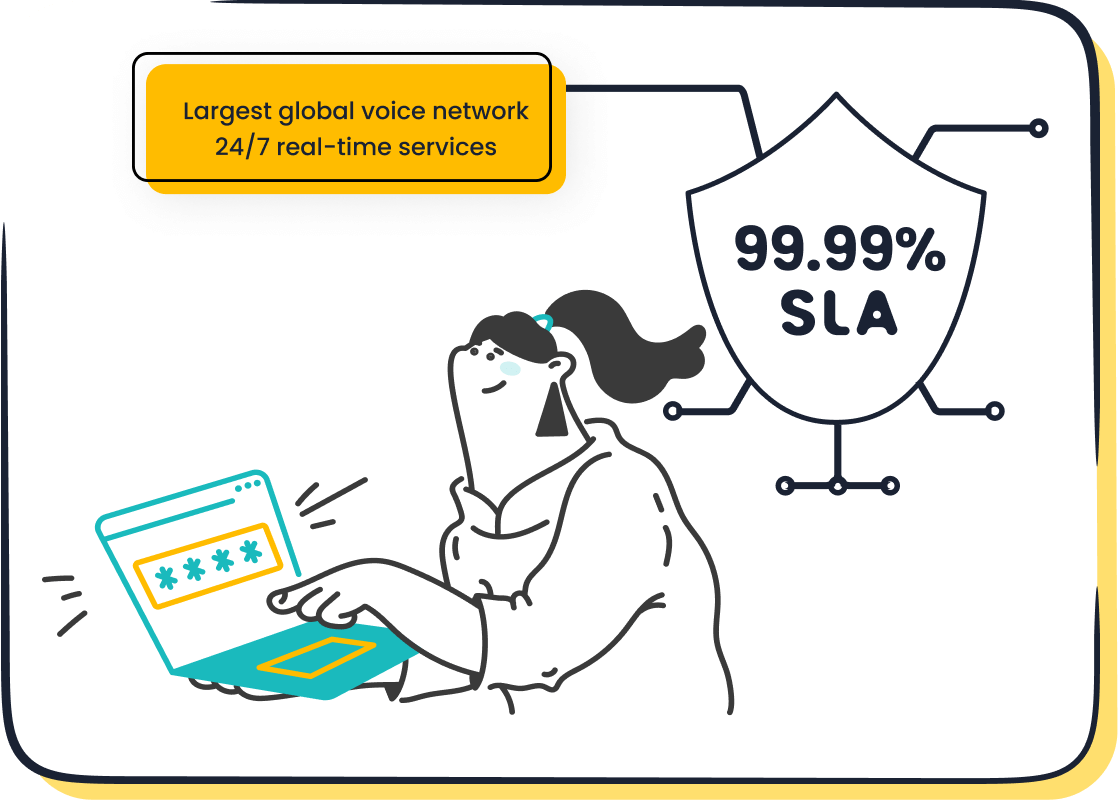
Common Challenges
When you start using manufacturing crm software, you might run into a few bumps. You could struggle with connecting your old systems or keeping customer data safe. Sometimes, your team resists change. Here’s a quick look at the most common challenges and how you can solve them:
| Challenge | Solution |
|---|---|
| Data Integration Challenges | Use strong integration tools and set clear data standards. |
| Data Security and Compliance | Build secure systems and follow industry rules for customer data. |
| Cultural and Organizational Change | Train your team and let them help make decisions. |
If you plan ahead and get everyone involved, you can overcome these problems and keep your manufacturing operations running smoothly.
Best Practices
You want your manufacturing crm software to work well for your business. Successful companies follow a few key steps. They set clear goals, train their teams, and use data to make smart choices. Agilent, a global leader in life sciences, used Sobot’s omnichannel solution and saw a sixfold jump in customer service efficiency, a 25% drop in costs, and a customer satisfaction score of 95%. See Agilent’s story.
| Benefit | Impact |
|---|---|
| Increased Sales Revenue | Sales went up by 21-30% after CRM adoption. |
| Improved Customer Satisfaction | 70% of manufacturers saw happier customers with personalized service. |
| Enhanced Operational Efficiency | 74% got better access to customer data. |
| Increased Customer Retention | CRM users kept 25% more customers. |
| Better Data Management | Forecasting improved by 15-20%. |
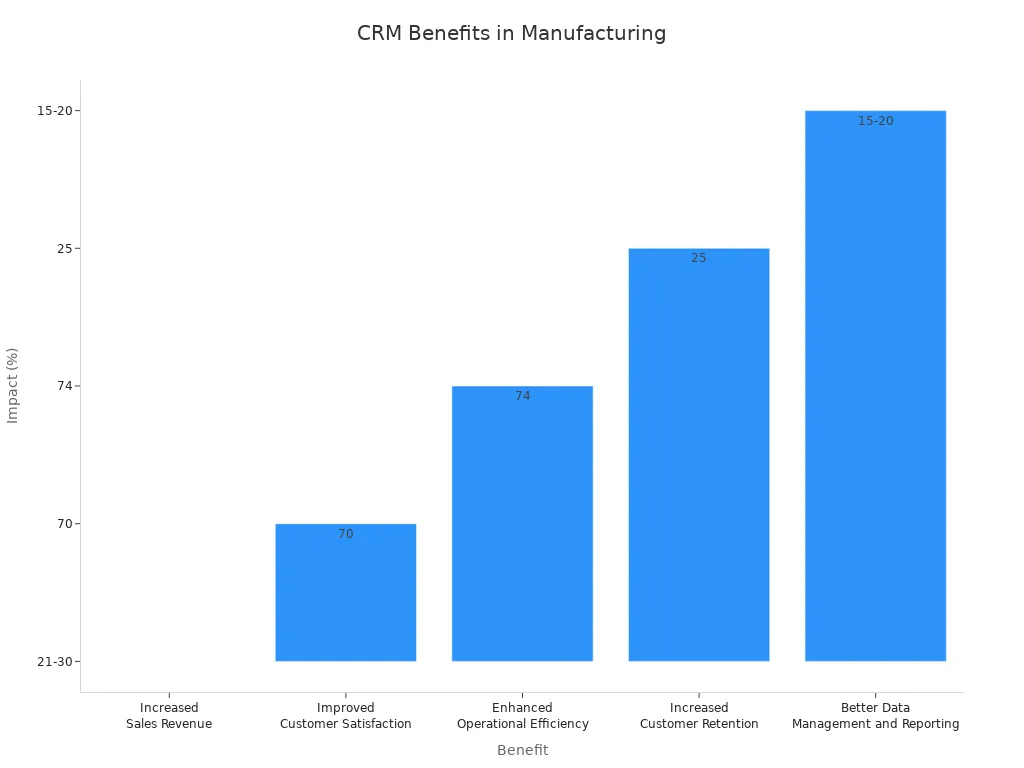
Training and Change Management
You need to help your team learn the new system. Offer hands-on training and answer questions. Let your team test the software and give feedback. When you support your team, you make change easier and boost customer satisfaction. Keep checking in and updating your training as your manufacturing crm software grows.
Tip: Involve your team early and celebrate small wins. This keeps everyone motivated and ready for new challenges.
Measuring ROI
You want to know if your investment pays off. Use this formula:
ROI (%) = [(Net Benefits – Investment Cost) / Investment Cost] x 100
Here’s how you can measure ROI for manufacturing crm software:
- Track revenue before and after CRM adoption.
- Count time saved from automation.
- Compare customer retention rates.
- Look at both hard numbers and soft benefits.
A company that raised monthly revenue from $50,000 to $60,000 after CRM adoption saw a 400% ROI. Automation can save time and lead to a 150% ROI. Shorter sales cycles mean more sales and happier customers.
Choosing the right manufacturing CRM software can help your business grow and keep your customers happy. Use the comparison table and evaluation steps to find the best CRM for your manufacturing business. Try demos, talk to vendors, or start a free trial with solutions like Sobot. When you pick the right manufacturing CRM software, you improve customer contact, boost service, and make your operations more efficient. Your team and your customers will notice the difference.
FAQ
What is a CRM and why do manufacturers need it?
A CRM helps you organize customer information, track orders, and manage sales. You get better communication with your team and customers. Manufacturers use CRM to boost efficiency and keep customers happy.
How does CRM improve customer service in manufacturing?
CRM lets you answer questions faster and track every customer request. You see all customer details in one place. This helps you solve problems quickly and build stronger relationships.
Can CRM connect with other manufacturing solutions?
Yes, most CRM systems connect with ERP, inventory, and accounting software. You get a smooth workflow and fewer mistakes. Integration helps you manage orders and customer data easily.
Is it hard to switch to a new CRM?
Switching can feel tough, but you get help from vendors. You can use training, demos, and support to make the change easier. Start with a small team and grow from there.
How do you measure success after using CRM?
You track sales growth, customer satisfaction, and time saved. Many manufacturers see faster order processing and happier customers. You can use reports and analytics to check your progress.
See Also
2024's Leading Customer Service Software Solutions Reviewed
Best Voice of the Customer Tools to Use in 2024
2024's Most Effective Call Center Analytics Software
